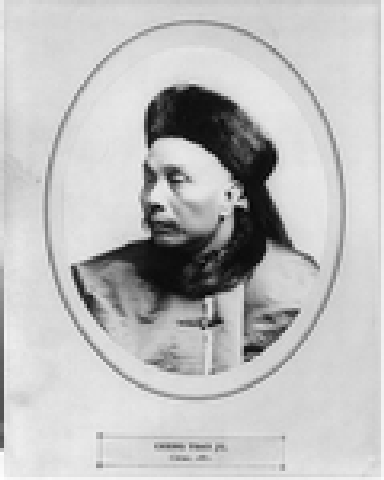
While driving with my family to visit an old friend the other day I caught a bit of Harry Schearer’s wrap-up of the year 2006 on Weekend Edition. During the interview Schearer was asked what happened with the 2006 Democratic election victory, and Schearer said yeah, what happened? What must be going through the minds of all the people who believed that the elections were stolen in 2000 and again in 2004, the people who can point out the series of miniscule irregularities that cumulatively disenfranchised the American people of their right to vote those two previous times? Did evil take a holiday in 2006?
Conspiracy theories are, of course, the opiate of the masses, but what happens when they are real? And what must be happening when they disappear? The most truly worthy conspiracies do not only control the mechanisms of power, but also the perception of power, and in doing so undermine the very Enlightenment notion that truth will set us free, since the conspirators control our perception of the truth. They are everything we like to accuse post-modernists and deconstructionists of being with one difference — they are effective. Any conspiracy worthy of being treated as a conspiracy, then, cannot simply disappear anymore than it can make itself appear. Everything we know about conspiracies are, a priori, false, managed, and inauthentic. An elaborate cover story.
In the very awareness that there is falsity in the world, however, one also becomes aware that there is something being hidden from us, and behind it, eventually, truth. Or as Descartes said in The Meditations :
…hence it follows, not only that what is cannot be produced by what is not, but likewise that the more perfect, in other words, that which contains in itself more reality, cannot be the effect of the less perfect….
One assumes, perhaps erroneously, that those who feed us lies must therefore possess the Truth. Here, then, is the dilemma for truth-seekers. What if knowing the truth entails speaking falsehoods to the rest of the world? We would like it not to be so, but what if the truth is so striking, so peculiar, so melancholic that the truth-seeker, despite herself, will ultimately be obliged to be mendacious once they are brought before the Truth itself, if only to protect others from what she has come to know? And if this were not the case, then wouldn’t someone have explained the Truth to us long ago?
One solution is to step back into a sort of pragmatic stance, and judge the pursuit of conspiracy theories ultimately to be delusional in nature. But — and here’s the rub — doesn’t this go against the evidence we have that conspiracies do in fact occur. Worse, isn’t this the sort of delusion, isn’t this the sort of lie, that prevents people from trying to unmask these conspiracies in the first place? Or as Baudelaire informed us,
Mes chers frères, n’oubliez jamais, quand vous entendrez vanter le progrès des lumières, que la plus belle des ruses du diable est de vous persuader qu’il n’existe pas!
If the conspiratorial nature of the world cannot be revealed as a truth, then it must first be revealed as a falsehood. This is how Leo Strauss, one of the architects of modern neoconservatism, put it in his short but revealing essay, Persecution and the Art of Writing. Because not everyone is morally, inetellectually, or constitutionally prepared to receive the Truth, truth should only ever be alluded to. Hints should be dropped, intentional errors and contradictions presented, which will lead the astute and prepared student to ask the correct questions that will eventually initiate him into the company of the elite. The obvious question rarely raised, then, is whether Strauss ever got the students he felt he deserved. Or were the allusions too obscure, and the paradoxes too knotted for anyone to follow him along the royal path?
Worse yet, could Pynchon’s suggestion from The Crying of Lot 49 be correct, and the pursuers of conspiracy in the end are the ones who make conspiracies come to life, taking on the task of hiding the truth that no one initially gave to them, protecting a truth that in the end does not exist?
Yet this denies what we all know in our hearts to be true. Conspiracies do exist, though not always in the form we imagine them to. Take, for instance, the recent excerpts in the poetry journal Exquiste Corpse from Nick Bromell’s upcoming “The Plan” or How Five Young Conservatives Rescued America.
Until now, “The Plan” has been merely a rumor. In the late 1980s, young conservatives spent hours reverently speculating about it over drinks at “The Sign of the Indian King” on M Street, while across town frustrated young liberals in the think tanks around Dupont Circle darkly attributed every conservative victory to this mythic document.
By the mid-1990s, the myth started to fade as each succeeding triumph of the conservative movement made it increasingly improbable that any group, however brilliant, could have planed the whole campaign. Eventually people referred to “The Plan” as one might refer to the Ark or to the gunman on the grassy knoll: intriguing but fantastical.
Brommell, however, was allowed to view the notes of a historian originally commissioned to write a history of The Plan — a project eventually discarded by the people who hired him — and publishes them for the first time in this online journal, revealing both the inspiration for and the details of the secret manifesto that has guided the conservative movement for the past fourty years.
There are even anachronisms and contradictions that, for me at least, do much to confirm the veracity of the source. One that has been mentioned by other commentators on the article is the fact that the included link to the National Enterprise Initiative (the organization founded by the authors of “The Plan” and which initially commissioned the aborted history) either doesn’t work or points to a bogus search site. For many, this indicates that the original reporting is bogus. But the obvious question remains as to why such a suposedly elaborate fiction will fail on such a minor detail as a web link? Who doesn’t know how to post a weblink anymore? On the other side, is it really so remarkable that an organization that wishes to remain hidden should suddenly disappear, along with all traces of it, once an unmasking piece of journalism is published concerning it? We are, after all, talking about the Internet, the veracity of which we all know to be dubious and mercurial, a vast palimpsest conspiracy.
Does the fact that something is absent from the Internet prove that it does not exist?
Or is it rather the case, as Neuhaus wrote in his 1623 Advertissiment pieux et utile des freres de la Rosee-Croix, which demonstrated the true existence of the Rosicrucian Brotherhood, a secret society who claimed to guide the history of Europe but that had only first been heard of in 1614 in Germany and quickly became the main topic of European discussion for the next quarter century regarding primarily the question ‘do they or do they not exist’:
By the very fact that they change and alter their name and that they mask their age, and that, by their own confession, they come and go without making themselves known, there is no Logician that could deny the necessity that they exist.


